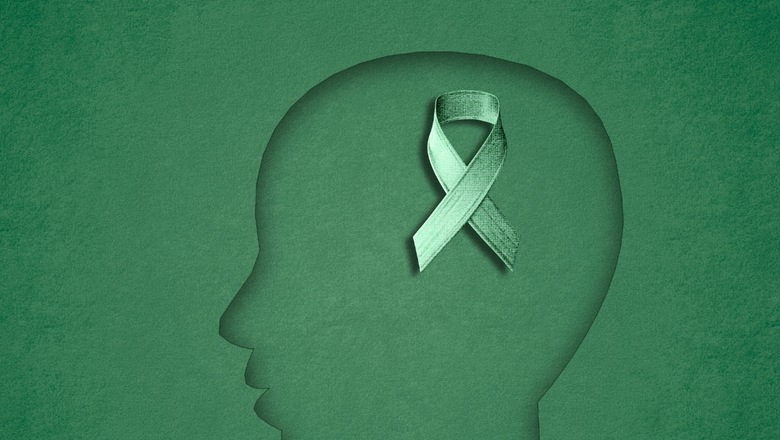
views
On World Mental Health Day 2023, I appeal to our prime minister to hold a mental health camp every quarter for the Parliamentarians, both from the Lok Sabha and the Rajya Sabha. I am not insinuating them of suffering from any mental illness or distress. My wish or advice is sincere. This act can be one big bomb that will burn the stigma that stops millions of Indians from identifying their problems and seeking help. We need to hold the issue by the jugular. The camps can screen for emotional distress/illness and also have various activities to build positive mental health.
The chief ministers of states and Union Territories can follow suit. Will everyone participate is the question. In a mental health workshop organised by the Speaker of the Goa Assembly and conducted by me for all MLAs, a few months back, the Opposition boycotted the same. But I feel this is a good beginning. The fence sitters and those who want to politicise the same will slowly join as mental health awareness is a secular health issue and the need of the hour for all. With 1/7 in India mentally ill as compared to 1/8 in the entire world, every family will need assistance. Mental health advocacy, awareness and intervention can unite political parties.
I have conducted such awareness workshops for elected representatives of several states, including Gujarat, across many years on behalf of the Rambhau Mhalgi Prabodhini Training Institute. I was pleasantly surprised that the elected representatives lapped it with genuine interest. A mental health camp goes a step further where the assessment of one’s mental state through simple tests can be conducted. This is just like a screening camp for diabetes, hypertension, thalassemia or cancer. When the top guys are the first movers, the janta will follow.
More than two decades ago, mental health camps at railway stations, initiated by the late Mr Gopal, a health activist, along with me received an overwhelming response. The Federation of Indian Chambers of Commerce and Industry can also follow suit. If the top guns and honchos across all borders make mental health screening popular, we will save many lives all over the country.
During the Covid-19 era, top leaders and bureaucrats took the Covid vaccine first across the world and shattered the stigma and fear of the vaccine for the common man. In Maharashtra, my friends such as Dr Shashank Joshi and others were the first to take the prick. Why can’t the same guys replicate this to break the stigma of mental illness?
A few months back, there were suicides in a couple of IITs. I do not know what transpired between the Parliamentary Committee that was investigating the suicides in these organisations recently and the Directors of the two IITs. Instead of politicising the deaths that happen after any high-profile suicide, positive measures can be a spin-off after such tragedies. Dragging the souls of those who have passed away due to emotional distress and scoring brownie points is the biggest crime.
In my visit to Kota more than 5 years ago, to study the reasons for suicides (there were over 45 in that year), I found that the centres were pressure cooker boilers where students enrolled were never tested for their aptitude for JEE or NEET. When these centres began decades ago, there were entrance exams to check whether the students had core interests and skills, basis which, approximately 80 per cent of students would be rejected. Market forces and an aspirational India has changed the rules and the landscape of the classes in this city. Anyone can get admission today and those with non-compatible skills can get choked in the stressful milieu. The biggest centre had the maximum number of suicides recently. Again, appointing counsellors just as a tick mark for display will never help. Students indeed bring a lot of psychological baggage from home but Eternal Psychological Vigilance should be the dharma of centres and institutions. For this, one needs an ecosystem to protect and nurture mental health along with early identification of high-risk cases in these edifices.
Suicide anywhere should never be viewed under the lens of caste and/or religion. A student dying of dengue or an accident is never highlighted. Following suicides, psychological autopsies are a must. If there has been intense trauma too, the autopsy can help unravel it. Such an autopsy is a systematic scientific method to evaluate the unfortunate event by going backwards and looking at it with a fine tooth comb. The evidence gathered can help build prevention strategies.
I hear from a few IITs that they are slowly veering towards a no-failure policy in BTech due to the pressure. This is not an answer. Engineering is a serious business and can never be twisted and tonsured to suit societal pressures that are irrational. Lateral and an early exit according to the NEP (New Education Policy) for difficult students is being implemented. Instead, making mental health promotion and intervention in IITs as big as Mood Indigo and Techfest can help maintain the scientific temper while tackling emotional pain. The reservation policy in the field of education needs to be re-examined and re-evaluated.
Counsellors sitting in their centres alone will not help. They need to be visible in the classroom discussing the feelings, issues and mental health concerns of students. They need to be seen in hostels and communities holding informal meetings in canteens or around a campfire beyond formal assessment and therapy sessions in private. Stigma diminishes when mental health professionals reach out rather than waiting for students to come.
There has been a 10 per cent increase in suicides in 2020 and a 7 per cent increase in 2021 in India. Every 35 minutes, a student in India kills himself, and this is an alarming statistic. India is in the midst of anger, angst and alienation. An article titled ‘Effect of globalisation on children’s mental health’ by Same Timimi (2005) states, “Despite several decades of economic growth, we are no happier. Growth not only fails to make people contented, it destroys many of the things that do bring contentment by weakening social cohesion. Thus a hallmark of Western market economics is that it promotes individualism while weakening social relationships. Globalisation is helping export this economic and moral value system worldwide.”
The increased pace of life and rapid social change has been a norm for several years in our country. An increase in mental distress and suicide are a result of the same. An article, ‘Globalization of Culture: Impact on Indian Psyche’ by Rama Rao and others (2019) believes that, “Instead of becoming bicultural, Indians may feel isolated and excluded from both their local culture and the global culture, truly belonging to neither. It may result in an acute sense of alienation and impermanence as they grow up with a lack of cultural certainty. Identity confusion among young people may be reflected in problems such as depression, suicide and substance use.”
In the US, 1/2 of adults reported experiencing loneliness before the Covid epidemic. “Loneliness is far more than just a bad feeling. It harms both individual and societal health. It is associated with a greater risk of cardiovascular disease, dementia, stroke, depression, anxiety and premature death. The mortality impact of being socially disconnected is similar to that caused by smoking up to 15 cigarettes a day. (Our Epidemic of Loneliness and Isolation: Surgeon General’s Advisory: USA 2023)”. The plight in India may be not as bad but very close.
Poverty in India has had a great impact on mental health. 1/4 of Indians who die of suicide are daily wage labourers (NCRB 2021). Mental health is not only about feelings but it is also about food. Non-contributory pensions in Mexico had a significant positive impact on symptoms in adults. Personal Health Budget in the UK had positive outcomes for people’s choice, control and quality of life. Unconditional cash transfers in Sweden helped better-perceived quality of life and social networks. Unconditional cash transfers in Brazil reduced suicide rates, in Malawi, reduced symptoms of depression in youth, especially girls and in Kenya, reduced the prevalence of depressive symptoms among young men. Cash transfers to new mothers in India reduced measures of maternal depression (World Mental Health Report 2022).
Suicides are not the only indicator of mental health burden. Road rage, wars between groups, violence in families, rage at workplaces and in communities also have mental health origins or associations. A three-year study of 26 cities in the US found that those with the highest level of resident attachment experienced the greatest growth in GDP during the study period. Loss of productivity is a consequence of the invisible mental health burden along with lifestyle diseases. Evidence across 25 years has demonstrated that social context is important to the development and management of diabetes (Diabetes Med 2020).
So where do we stand now? India is a complex state and a million different interventions can help. Building affordable, acute, intermediate and long-term care is a must in at least every district. But the challenge is in building a culture of connection as disconnection is a silent killer, worse than Diabetes or AIDS. We need a Mental Health Minister today, both at the Centre and in the states.
Dr Harish Shetty is a Psychiatrist and has been working with students across three decades and conducts sessions in educational institutions regularly. Views expressed in the above piece are personal and solely that of the author. They do not necessarily reflect News18’s views.



















Comments
0 comment